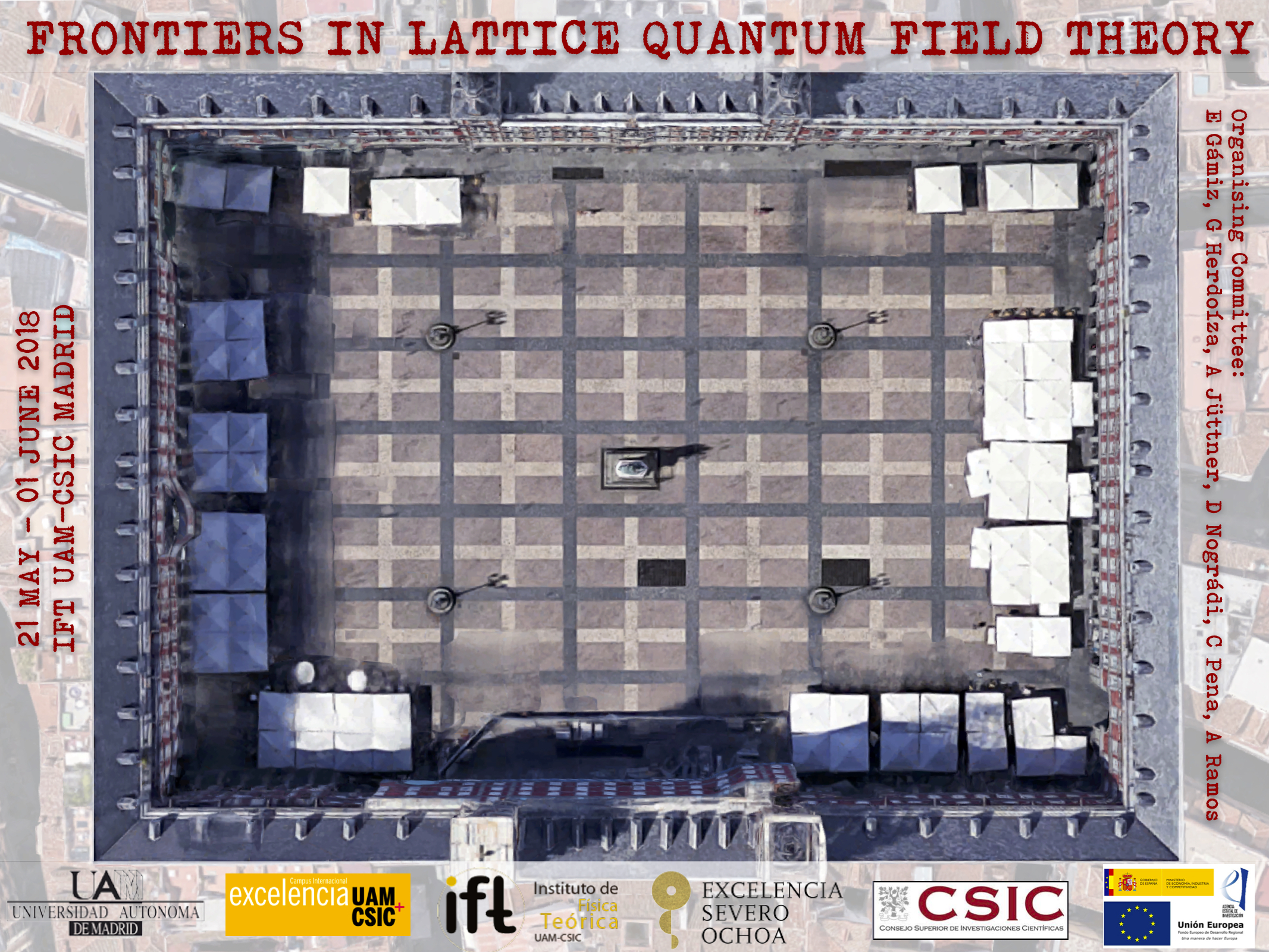Frontiers in Lattice Quantum Field Theory
→
Europe/Madrid
Instituto de Física Teórica UAM-CSIC, Madrid
Description

We will discuss recent progress in Lattice Quantum Field Theory, focussing on the topics that are likely to dominate the field in the next few years, and the challenges it faces.
This programme is part of the activities of the Centro de Excelencia Severo Ochoa IFT UAM-CSIC.
Participants
- Agostino Patella
- Alberto Ramos
- Andrea Bussone
- Andrea Shindler
- Andreas Jüttner
- Antoine Gérardin
- Antonin Portelli
- Carlos Pena
- Carsten Urbach
- Chris Monahan
- Damir Bečirević
- Daniel Robaina
- Dániel Nógrádi
- Eduardo Ibáñez
- Elvira Gámiz
- Francesco Sanfilippo
- Gregorio Herdoiza
- Guido Cossu
- Javier Ugarrio
- José Ángel Romero
- Kálman Szabó
- Marco Cè
- Margarita Garcia
- Marina Krstić Marinković
- Martin Hasenbusch
- Mattia Bruno
- Mattia Dalla Brida
- Maxwell Hansen
- Michele Della Morte
- Nazario Tantalo
- Petros Dimopoulos
- Pilar Hernandez
- Raúl Briceño
- Sergio Chaves
- Stefan Meinel
- Stefan Schaefer
- Taku (出渕 卓) Izubuchi
- Valentina Forini
- Vera Gülpers
- Xu (冯旭) Feng